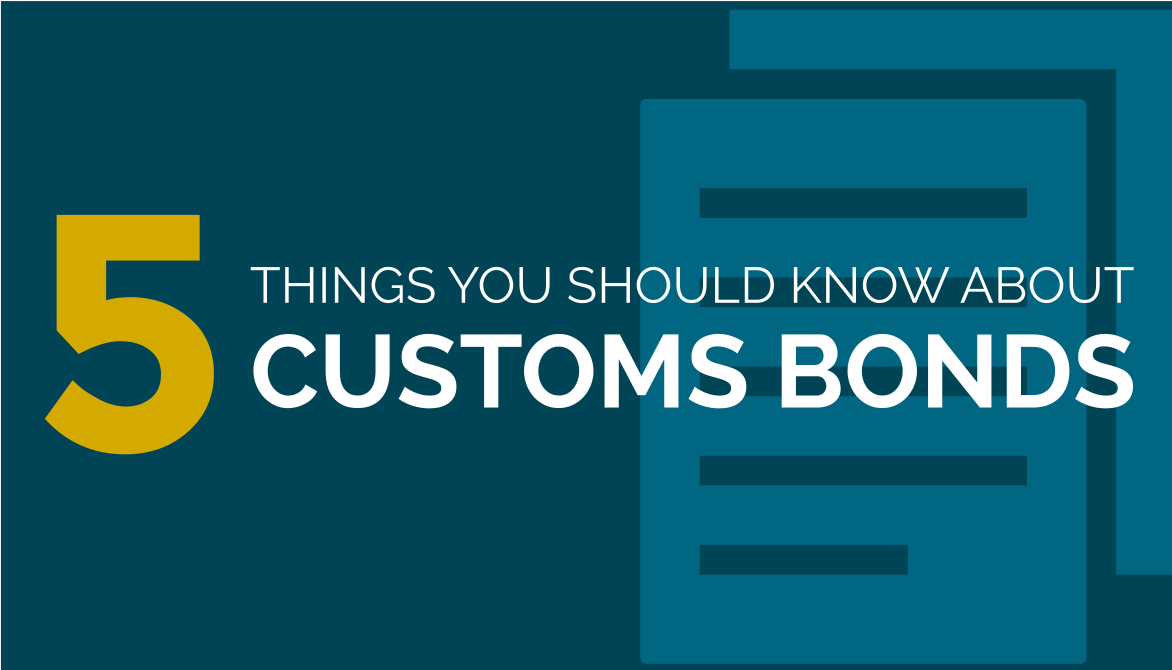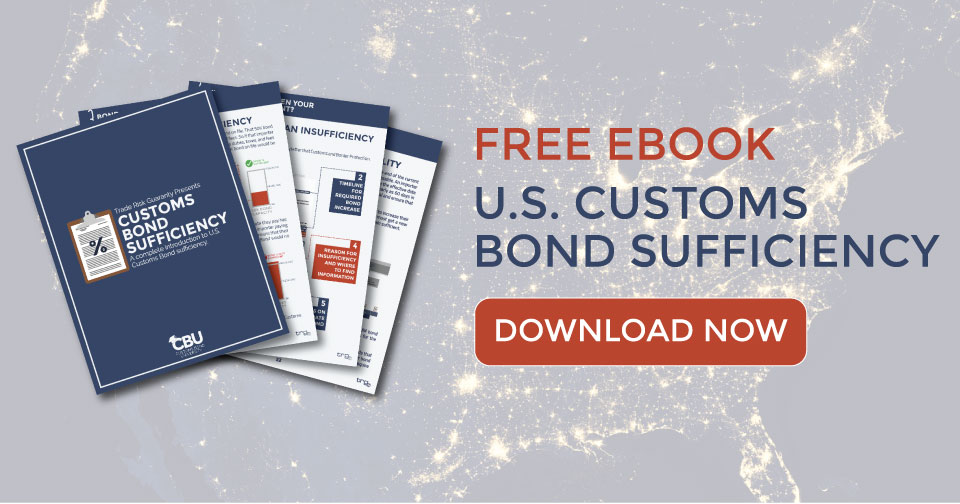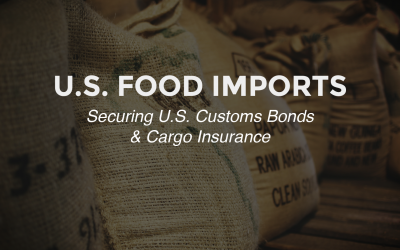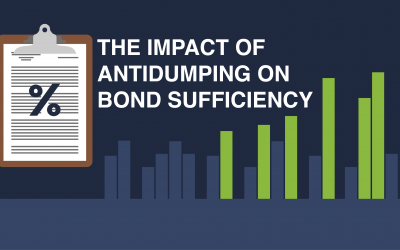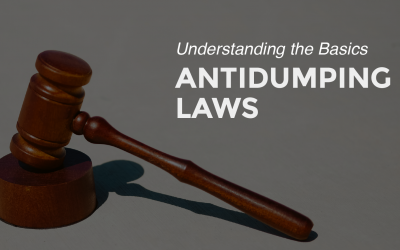Customs Bonds are a regular part of the importing community, and knowing more about them can help to increase compliance. Below are five things every importer should know about them.
Although they are a vital element of international trade, many people are not familiar with U.S. Customs bonds, or their functions. This list should provide a good starting point on Customs bond knowledge, however, Customs and Border Protection’s website is the ultimate resource for detailed information.
A Customs Bond Does Not Provide Coverage
Although Customs bonds are technically insurance products, they serve a unique function. A U.S. Customs bond is a three-party agreement between a bond principal, U.S. Customs and Border Protection (CBP), and a surety. The agreement guarantees the principal’s outstanding financial obligations to CBP will be fulfilled, if not by the principal, then by the surety who issued the bond (up to the liability threshold).
A Customs Bond Is Not Optional
Unlike most other trade-related insurance products, a U.S. Customs bond is a mandatory document. Without a valid U.S. Customs bond in place, CBP will not allow imported goods beyond the port of entry and into U.S. commerce.
Continuous U.S. Customs Bonds Do Not Expire Or Renew
Once filed with CBP, a continuous U.S. Customs bond will remain on file until actively terminated by the bond’s principal, the surety who issued the bond, or by CBP. It is a common practice for surety agencies, Customs brokers, and freight forwarders to invoice their clients on an annual basis. Since a continuous bond never technically expires, some providers offer their clients the option to pay for multiple years in advance.
If You Are Importing, You May Already Hold One
If you are bringing goods into the U.S. regularly, you probably already hold a continuous Customs bond. It may even show up as a line item on your logistics service provider’s invoice. Some importers bring a low volume of goods into the country under their Customs broker or freight forwarder’s import bond, but this is almost never a cost-effective option for large volumes of shipments. Single transaction bonds are also available; however, they are often cost-prohibitive for importers bringing in more than a few shipments per year.
You Can Purchase A Customs Bond Directly From A Surety Agency
Although you can purchase your U.S. Customs bond through a licensed Customs broker or freight forwarder, some surety agencies provide Customs bonds directly to consumers. The direct purchase option often provides significant cost savings.
Hopefully, this list helps kick start your journey to becoming a Customs bond expert. As always, check with a licensed professional before making any decisions that might affect your supply chain.

